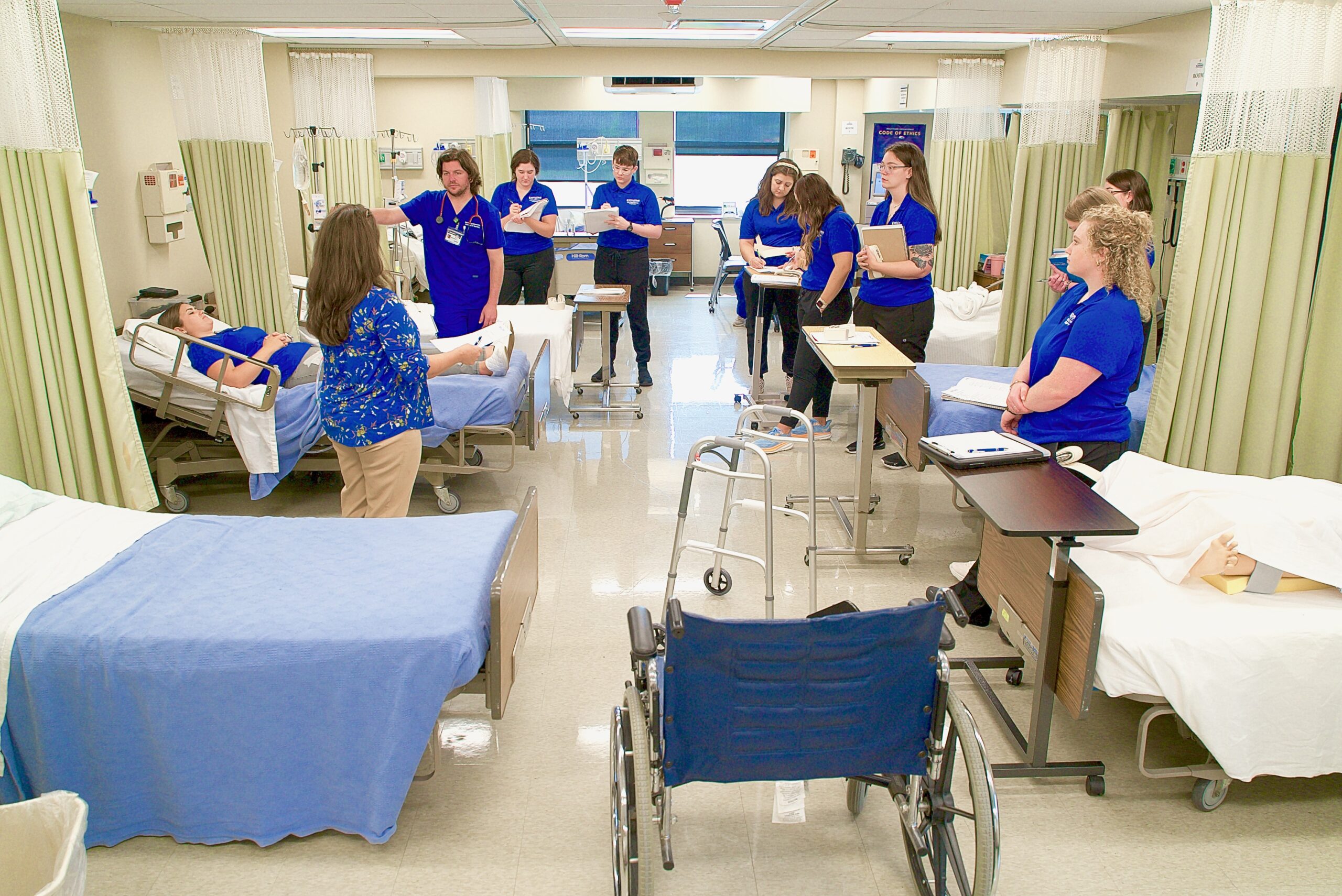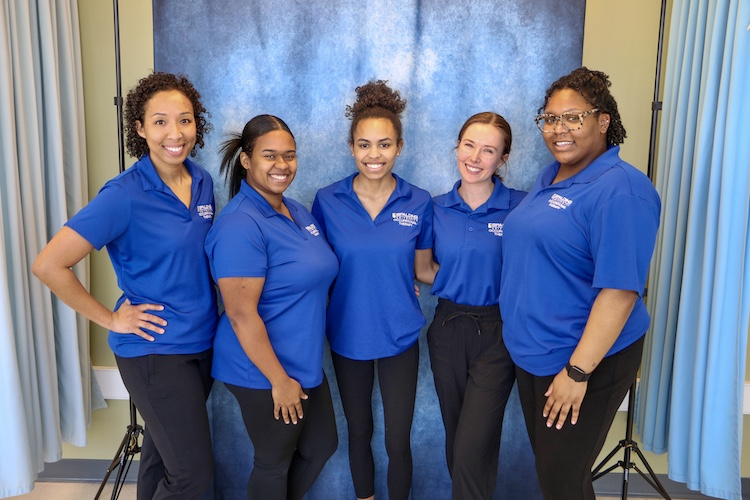Curriculum – Post-Professional OTD

Post-Professional OTD Curriculum
Our post-professional OTD can be completed in four 13-week trimesters plus capstone.
Curriculum & Course Descriptions
Trimester 1: OT 920Z (6 Credit Hours)
Occupational Therapy Theory in Practice, Education and Research
This course presents theoretical constructs of occupation, occupational therapy and occupational science with relevance of how they form the basis for occupation-based evaluation, planning, intervention, and outcome measurement. Students will examine how theories and models describe or explain phenomenon at different levels and relate to varied types of scientific evidence and inquiry. Learning outcomes that require one to support or refute propositions reflected in practice models and theories will occur. The course is designed to enhance students’ capacity to think critically about the ways theories and models are used to guide professional practice, educational models and for advancing professional inquiry. A major goal of this class is for the student to compare and contrast current theoretical models of practice and frames of references including their use for specific populations and practice settings This course is offered exclusively online.
Trimester 2: OT 930Z (6 Credit Hours)
Occupational Therapy Scientific Inquiry and Research
This course promotes the occupational therapists’ advanced and enhanced scholarship skills including critiquing and evaluating research for professional decision making. Using scholarship knowledge for informing occupational therapy practice is a major learning outcome of this course. It includes a review and use of descriptive and inferential statistics for understanding critiquing and conducting valid research. Students will construct and execute search strategies using internet and database technologies to identify and locate best evidence for selected occupational therapy interventions. Students will demonstrate the ability to use the hierarchy of evidence and appraisal tools to screen and select articles based upon usefulness within professional practice settings. Developing and evaluating scholarly proposal(s), data collection, methodology, instrument psychometrics, data analysis, obtaining external funding, and demonstrating the steps of writing a systematic review of the literature (including the demonstration of critiquing the validity of research studies including designs and methodologies) are learning outcomes in this course. This course is offered exclusively online.
Trimester 3: OT 940Z (6 Credit Hours)
Occupational Therapy Practice: Legal, Ethical and Policy Issues
This course is designed to advance occupational therapists’ knowledge regarding the important role(s) law, ethics, regulation and policy play in determining occupational therapy practice. Students will identify the influence of economics, population demographics, sociopolitical issues and technological advances on current practice. Development of enhanced skills to analyze political, legislative, legal, and ethical aspects of practice and broader public health issues will occur. Practice issues discussed include: reimbursement sources and billing regulations/procedures, workers’ compensation, the Americans with Disabilities Act, IDEA, privacy & confidentiality, guardianship, malpractice issues, regulatory reform and advanced directives, among others. Upon completion of the course, students will possess skills for providing leadership for policy negotiations in health care institutions, communities, professional associations and regulatory review boards. This course is offered exclusively online.
Trimester 4: OT 950Z (6 Credit Hours)
Leadership, Advocacy and Advanced Occupational Therapy Practice
Examines the varied roles and responsibilities of the occupational therapist as a leader in practice, education, research, consultative, entrepreneur, and policy arenas. Roles include involvement in international, national, state, and local professional associations. Application of leadership theory, adult learning, change processes, program development, and marketing strategies are emphasized. Outcomes focused on advocacy in health or community settings for impacting change within varied practice and policy arenas will occur. The impact of professional and personal accountability, competency and advanced advocacy strategies for the profession is emphasized. The development of an electronic professional portfolio for the demonstration of advanced practice and advocacy is a major outcome of the course. This course is offered exclusively online.
Capstone: OT 960Z (6 Credit Hours)
Evidence Based Occupational Therapy Practice Capstone
This course provides a capstone experience for the student to engage in program development and evidence-informed practice within an individually identified practice setting. The capacity to demonstrate critical appraisal and use of research within the practice setting is a major outcome of this course that includes a culminating capstone project. Students will demonstrate the ability to use the hierarchy of evidence and appraisal tools to screen and select evidence, demonstrate program development, and outcome measurements useful for advancing the profession through leadership and advocacy processes within a specific student directed/identified practice setting. This course is offered as an online independent study with individual faculty mentor collaboration and online support.
Download our Learning Outcomes and Course Descriptions (PDF).
Post-Professional OTD + MBA Dual Degree
Students enrolled in the PPOTD + MBA dual degree program will follow the Professional MBA concentration. Visit the Master of Business Administration Curriculum page for the Professional MBA curriculum information. The course sequence for MBA classes will depend on when the student starts the MBA portion of the dual degree.
Program Accreditation

Spalding University’s Auerbach School of Occupational Therapy is accredited by the Accreditation Council for Occupational Therapy Education (ACOTE). That means that you are getting a quality education that follows industry best practices. Our goal is to achieve the best outcomes for every student.
See our professional licensure disclosure.
